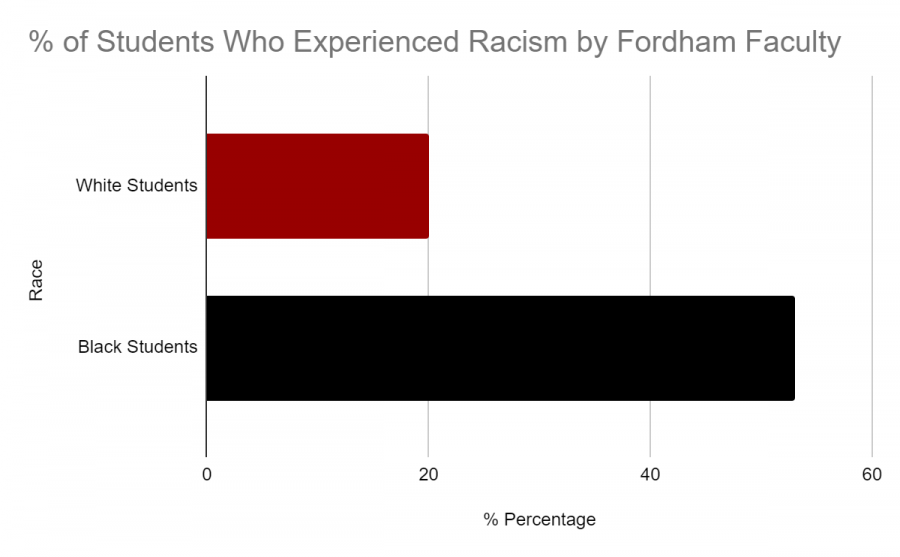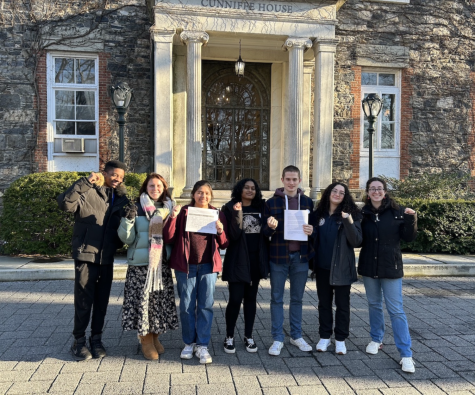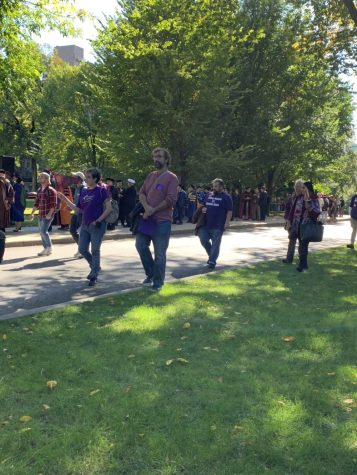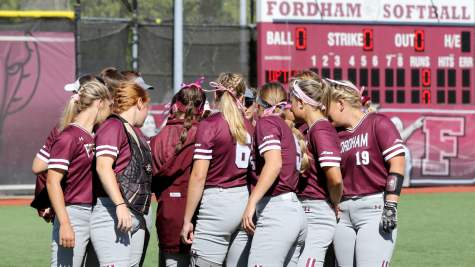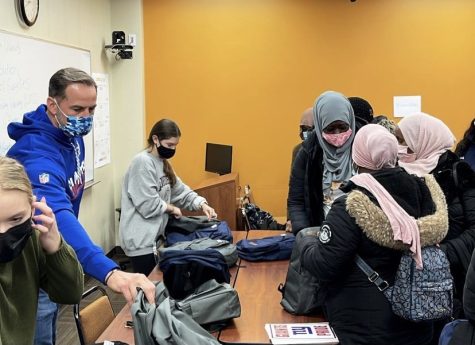Fordham Alumni Anti-Racist Collective Aims to Support ASILI’s Demands
The Fordham Anti-Racist Alumni Collective (FAAC) was established this past summer in support of the Black Student Alliance (ASILI)’s list of demands.
“As a group, our number one value and purpose is to center Black voices, and specifically to uplift and support the voices of Black students and alumni of Fordham both in the current national moment and movement for Black lives and moving forward,” read a statement from their website. “In the past, it has been hard to ask for substantial change from Fordham due to the limitations of student organizing. Our goal is to provide a consistent and ongoing way to hold Fordham accountable with the stability of an alumni organizing group.”
The organization welcomes alumni of all schools and class years. It is made up of a coordination team, institutional knowledge team, outreach team, press team and social media team. They are not affiliated with Fordham University.
Kayleigh Robertson, FCRH ’19, said she got involved after filling out an alumni survey sent out over the summer. She has been working on the social media team for FAAC.
“We use our platform to help amplify ASILI’s demands and reach out to other affinity groups and accounts like @BlackAtFordham and @LetsTalkAboutItFordham to get more exposure to the demands,” she said.
Aakash Kumar, FCLC ’17, got involved with FAAC through a fellow alumni from the Ignite board (a Fordham Global Outreach (GO!) alumni organization) and is a member of the press team and social media team.
Kumar’s classmate was messaging people after the death of George Floyd and the national recognition of Black Lives Matter.
“She wanted to form a group of alumni in response to these events and hold Fordham accountable in how they deal with systemic racism on their campuses,” said Kumar. “I was one of the people who was at the first meeting and have been involved in the organization since.”
Alina Kwiatkowski, GSB ’20, is on the communications team. She got involved this past July after seeing info about it on social media.
“I came to a couple meetings and really loved the spirit and purpose of the group,” she said.
So far FAAC has created social media pages, established a website, sent press releases to local newspapers and set up a regular newsletter.
“We have amplified ASILI’s demands through social media and emailing Fordham admin to respond to these demands,” said Kumar.
Kwiatkowski helped set up the newsletter and has helped send out regular communications since September.
“It’s an exciting step because there are a lot of alumni who want to be involved but don’t have the bandwidth to attend meetings, and this is a great way to disseminate updates and upcoming calls to action,” she said.
According to Robertson, FAAC is working on getting testimonials from students and alumni about racist acts that have occurred on campus.
“We know Fordham doesn’t listen much to anonymous sources, so we are trying to find people who are willing to speak out on the record,” she said. “We do understand that current students might be more hesitant to put their name out there, which is why we’re focusing more on alumni.”
Kumar added that they are also working on social media campaigns that people could participate in and detail how Fordham may have “failed” at tackling racism on campus or dealing with racial incidents that have affected students.
So far, they have released two press statements, one about ASILI demands and a FAAC alumni survey.
The survey questioned 2,000 Fordham alumni about their experiences at Fordham’s undergraduate and graduate schools at both campuses.
The results of the survey found that 53% of Black respondents said they experienced discrimination by faculty at Fordham compared to 20% of white students.
45% of Black respondents felt safer with Fordham Public Safety compared to more than 75% of white respondents.
42% of Black respondents experienced discrimination by Fordham Public Safety compared to 10% of white respondents.
24% of Black respondents said they felt comfortable calling Public Safety compared to 48% of white respondents.
“The survey reveals disparities in Black and white student experience both in and outside of the classroom,” read the press release.
Kwiatkowski said FAAC is hoping to highlight ASILI’s demands and help reinforce the need for them by highlighting instances and systems of racism at Fordham.
FAAC has welcomed some ASILI board members at their meetings.
“We will continue to support ASILI and the actions they take to create the change they want to see in the university,” said Kumar.
Robertson said FAAC is hoping to put pressure on Fordham to make these changes as they are not threatened with academic or student life repercussions.
“We all know that Fordham doesn’t have the best free speech procedures put in place, and students can face consequences for speaking out,” said Robertson. “Fordham can’t come after alumni because we aren’t under their rule anymore.”
FAAC welcomes alumni who want to see Fordham acknowledge their inability to deal with systemic racism on their campuses in the past and work towards a better future for students, faculty and Fordham members of all races, according to Kumar.
“For many alumni who may have bittersweet feelings about how Fordham deals with racism on its campuses, this is an organization that is working to change that for current and future students,” said Kumar.
Kwiatkowski reiterated the sentiments of Kumar and Robertson.
“While we might have had negative experiences ourselves, it’s possible to make it better for current and future students,” she said. “Also, we have a lot of different skills and networks and we can use that to bring people together and help ASILI demands get attention.”
Kwiatkowski said FAAC welcomes any new members, including alumni, current students and faculty.



































































































































































































